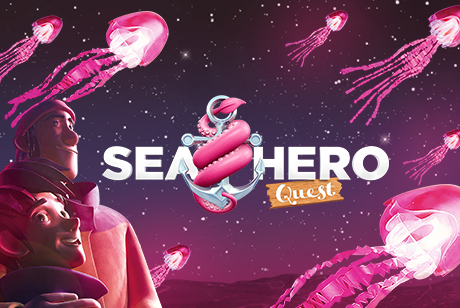Saatchi & Saatchi create ‘Sea Hero Quest’, the World’s first mobile game where anyone can help scientists fight dementia, for Deutsche Telekom Saatchi & Saatchi and Deutsche Telekom has unveiled ‘Sea Hero Quest’. Developed in partnership with a team of scientific researchers from University College London, The University of East Anglia and gaming experts Glitchers, ‘Sea Hero. May 19, 2016 At the start of May, they launched a new mobile game called Sea Hero Quest. The game puts you in the shoes of an unnamed sailor, whose father is slowly losing memories of his life as a seafaring explorer. To try and help him remember his past.
Sea Hero QuestBY: GLITCHERS LTDPlatforms: iOS, AndroidSea Hero Quest is a mobile game developed by GLITCHERS LTD for iPhone and Android devices! Watch the video below and learn how to play and beat this level.Sea Hero Quest 🐳 Level 62 High Rollers - 3 Stars Walkthrough Memorise The Map played by Hawk Games.If you enjoyed the video and want to see more Sea Hero Quest gameplay videos, leave a Like!You can download and play the game.Have another tips or questions specific for Level 62 in Sea Hero Quest?
Please leave it in the comments section below.
One of the most devastating diseases that people can suffer from is Alzheimer’s. The disease affects memory and can make people forget family and friends. Towers of heaven book 2. A new game that is a partnership between Deutsche Telekom, Alzheimer’s Research UK, University College London, the University of East Anglia and game developers Glitchers aims to help researchers understand dementia by seeing how the brain works in relation to spatial navigation.
The game has players making their way through mazes of islands and icebergs. Each half second of gameplay can be translated into scientific data. So far the game has been downloaded by over 4.3 million people around the world. Data gathered from payers of the game is compared to data from players of the game with a known genetic predisposition to Alzheimer’s.
Players who are known to have a genetic predisposition to the disease consisted of a lab group of 31 volunteers where had been genetically tested to carry the APOE4 gene known to be linked to Alzheimer’s disease. The study group also included 29 people who lacked that gene. The researchers matched both lab groups for age, gender, education, and nationality with the benchmark cohort.
Data was studied from 27,108 UK players between 50 and 75 years old, which is the most vulnerable age-group to develop Alzheimer’s in the next decade. What the team found was that those at a higher genetic risk, the players with the APOE4 gene, performed worse on spatial navigation tasks.
In the game, worse spatial navigation meant less efficient routes to checkpoint goals. One researcher, Prof Hornberger, said that the discovery was important because the people showed no memory problems. The result according to Hornberger is that the game can detect people at genetic risk of developing Alzheimer’s based on how they play the game.
